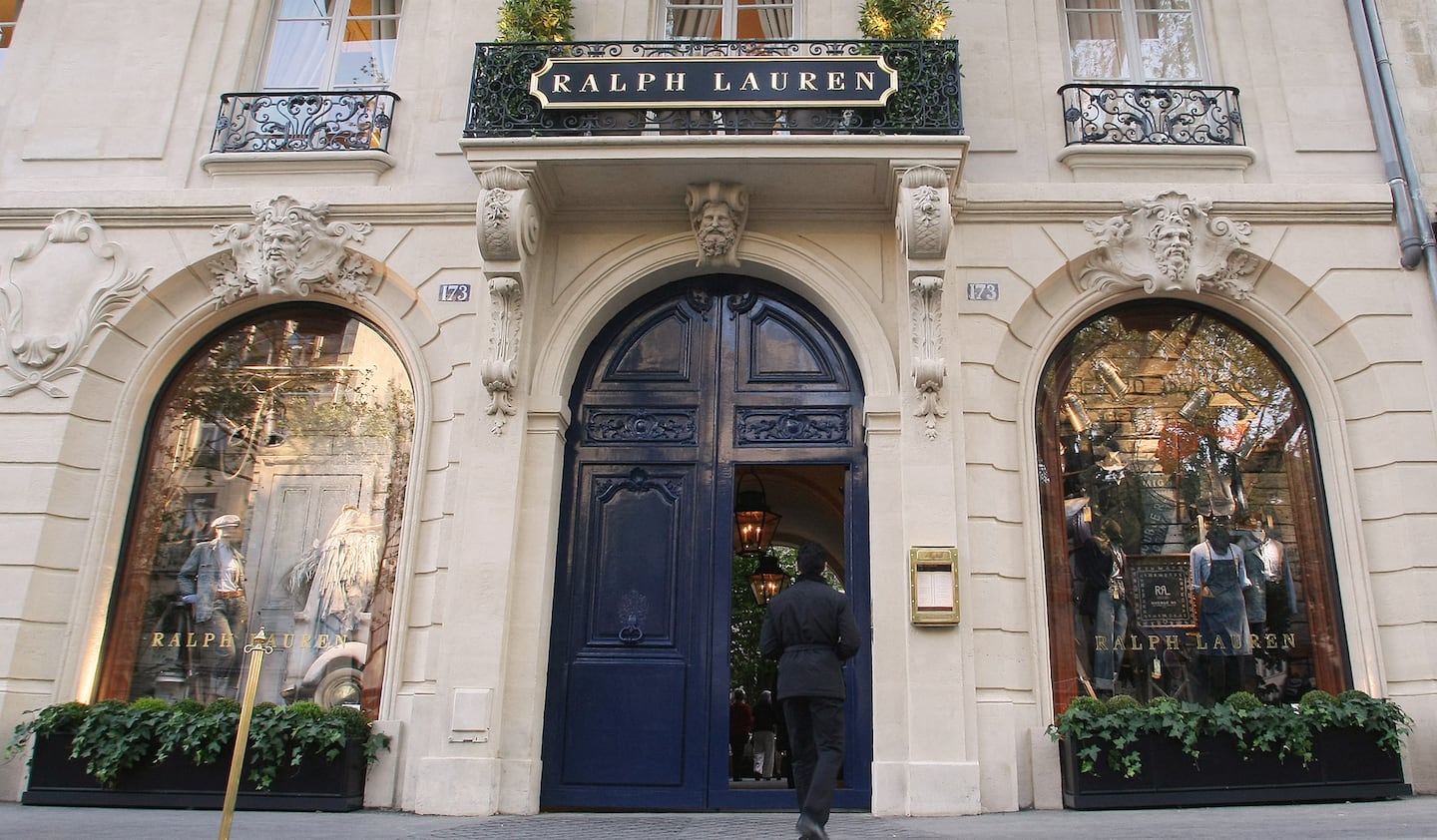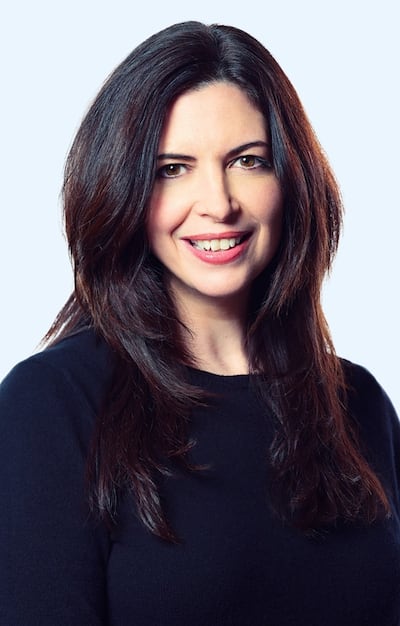
The Business of Fashion
Agenda-setting intelligence, analysis and advice for the global fashion community.

Agenda-setting intelligence, analysis and advice for the global fashion community.

Discover global job opportunities in merchandising on BoF Careers today.
Having spent time in New York growing up, Kiera Ganann’s interest in fashion was piqued by visits to the Metropolitan Museum of Art’s Costume Institute. She went on to study Journalism at the University of Oklahoma, tailoring her degree to her personal interests by writing her thesis on Calvin Klein and “how they were blamed for the onslaught of waif culture.”
This fascination with the aesthetic influence of the likes of Kate Moss and Mark Wahlberg was channelled into her pursuit of a career in advertising. “I focused on how the visuals represented the product and that made me realise how interested I was in the [fashion] industry. I became very friendly with many people in the retail space and retail seemed so glamorous, so I went for it.”
She has since gained over 25 years of experience in apparel and accessories, with merchandising and commercial roles at brands from the likes of James Perse and French Connection to Ralph Lauren and Levi’s. Ganann most recently held the role of chief commercial officer at material solutions company Bolt Threads and currently sits on the board of the Fashion Scholarship Fund.
ADVERTISEMENT
For the full interview, watch on-demand the LinkedIn Live: Building a Career in Fashion with Kiera Ganann.

You need to be able to put yourself out there. You need to be knowledgeable: read up on everything; understand the dynamics of consumer shifts; follow brands that you love; follow brands that you don’t love. How are they becoming big?
You need to fill your cup with [different resources]. Regardless of your political affiliations or the geography of where you are — find three or four publications that really fill it up for you.
For me, I took opportunities as they came and I wasn’t afraid to ask questions. This was all in service of educating myself and continuing to learn. So, if there are classes available or events that were optional or meetings that you were invited to attend but didn’t necessarily have to, those are the things that really allow you to understand the organisation better and put you in the right place when opportunity does arise.
I worked as a retail manager at the Ralph Lauren Mansion at Madison 22nd— that was my first real fashion job. I like making people feel comfortable and I devoured the storytelling that Ralph Lauren had to offer of the product and the vision. That’s when I began to develop leadership qualities too — dealing with difficult people, negotiating, it’s definitely not all about the glamour.
[...] I always say — I love hiring people who have retail, restaurant or hospitality experience because they’ve dealt with situations and complexity that they never thought they would have to and they’ve been able to figure out ways to get beyond it.
[...] In retail, it’s about being able to influence people, listening to what they’re saying to you. If you don’t learn how to step back and listen to what people are saying to you, you miss most of the learnings of that experience. That really stands out to me — how to navigate the politics of an organisation and a brand and how to deal with those difficult people.
Degrees are a guidepost — they don’t necessarily have to define the rest of your career. In my situation, being a part of the journalism and advertising school, I really learnt how to present myself and the power of the written and spoken word, which helped me in interviews and in front of customers, particularly as I navigated retail.
ADVERTISEMENT
That was more of a leg up, rather than studying the industry, like [doing a degree in] merchandising or fashion. But, I meet with a lot of scholars who are doing that today and I am so jealous that they had an early start.
I learned early on how to be open to feedback. If you are open to feedback you can really grow, both in your personal life and professional life. I continue to learn that it is okay to make mistakes. I think we’re all a little bit scared of that in the beginning.
I love hiring people who have retail, restaurant or hospitality experience because they’ve dealt with situations and complexity that they never thought they would have to.
I remember one particular learning very well. I’ll headline it by saying — don’t fake it. Be authentic to what you know and to yourself. I was presenting a corporate strategy to my peers and my boss and I was challenged about the revenue trajectory that I had laid out. And instead of really listening to the argument, I dug my heels in — I was right, they were wrong.
I didn’t have a tonne of experience at this time and what I didn’t realise was that I had made an error in my calculation — it wasn’t about the strategy or the thought process. I was so concerned about how I looked that I didn’t really stop to hear that argument and from then I learned I had to slow down and accept that I was going to make those mistakes.
The role of the merchant has many different interpretations. The merchant is the centre of the wheel and historically that has been segmented by channel. So, you’ve had merchants that focus on e-commerce and merchants that focus on vertical retail and wholesale merchants and now all [of] that is converging.
It’s about establishing a relationship with people who you respect, who you believe are doing the right thing, whose leadership style that you like [...] and building up relationships with those people.
An understanding of data analytics [is important] — an ability to consider the data and what’s to come in the future and appreciate both sides of that fence. That’s what’s really changed in merchandising. There are days when you’re only going to look at the data and there are days when you’re only going to look at what the brand intention is. That balance is really important in an entry level position.
There has to be a willingness to be flexible and expand beyond the role you’re specifically looking for. Say you’re looking into an organisation, [...] interviewing for a product merchandising role, but that role has turned into a visual merchandising role or a wholesale sales role — it’s important [to be open to this change] when you’re interviewing in the beginning.
Things that stand out the most are a clear understanding of what you want. So, at the very top, tell your prospective employer — “what do you want to be?” You need to be flexible, but you should still have a goal, an objective.
ADVERTISEMENT
The other thing is — if you do have experiences in something, be very clear and concise about what it is that you actioned. Instead of saying, “I led a team” — tell them what that means.
Regardless of what industry you’ve worked in previously, what people want to look at is — is this individual capable of running a business, of understanding a product, of recognising a trend? Those are talents that can be developed across multiple industries.
Ralph Lauren is a very large organisation, so understanding the value of relationships helped me to navigate the company. It’s about establishing a relationship with people who you respect, who you believe are doing the right thing, whose leadership style you like, or a peer who’s been there for a long time and attaching yourself and building up relationships with those people.
You need to be knowledgeable: read up on everything; understand the dynamics of consumer shifts; follow brands that you love; follow brands that you don’t love.
Who you work for is definitively more important than the brand you work for. People change all the time but working with a good group of people and a leader who inspires you and peers who respect what you’re bringing to the table is important for navigating your career.
The decision to move to Bolt Threads was because I am ultimately interested in leading a brand at a large organisation or a group and one area that I didn’t have a lot of experience in was supply chain and sourcing, particularly sustainability and innovation.
In order for us to grow in life you have to push boundaries. Learning a new discipline and a new way of working with different types of people helps you understand how to be a better leader and to be more valuable to the brand or the company you’re representing.
I do feel that in this industry, we can be masters of a category and very seamlessly transition to another because at the end of the day, what you’re looking to do is attract the consumer. Whether that’s through pricing dynamics or transparency of where the materials are coming from or the experience the consumer has or the fit or the relevance to the centre of culture, understanding all these different aspects of the industry helps refine the approach on how to attract your consumer. So, always try new fields if you have the opportunity.
I’ve had mentors and I’ve been a mentor and [find] the best relationships are more organic. A lot of large organisations also have mentorship programmes and if your company offers [you] one, you should become a part of it, whichever side of it you’re on, because it allows you to get to know people in a different way. But, those matches don’t always work. It has to be that right personality fit, but also the adjacency fit. What do they do and what do you do and can you learn from each other in different ways?
If you are doing it on your own, you should be looking for somebody who has a similar personality to you, or who’s career you’ve admired. It’s about asking for time with them — “can I have some time or buy you a coffee — I have some questions. You’ve been here for a long time” or “I heard you’ve been speaking at whatever event and I’d love to hear more about it.” Don’t be afraid to put yourself out there.
A US regulator has banned most uses of the clauses, which started as a way for fashion companies to prevent senior executives from walking off with trade secrets, but have become a standard retention tool.
Check out this week’s new partners and openings on BoF Careers, the global marketplace for fashion talent.
BoF Careers provides essential sector insights for fashion designers this month, to help you decode fashion’s creative and commercial landscape.
This week, talent expert Suki Sandhu OBE and advisor and executive search consultant Karen Harvey shared insights on the core skill sets expected of leaders and managers in the fashion industry today. BoF Careers shares key learnings from the event.